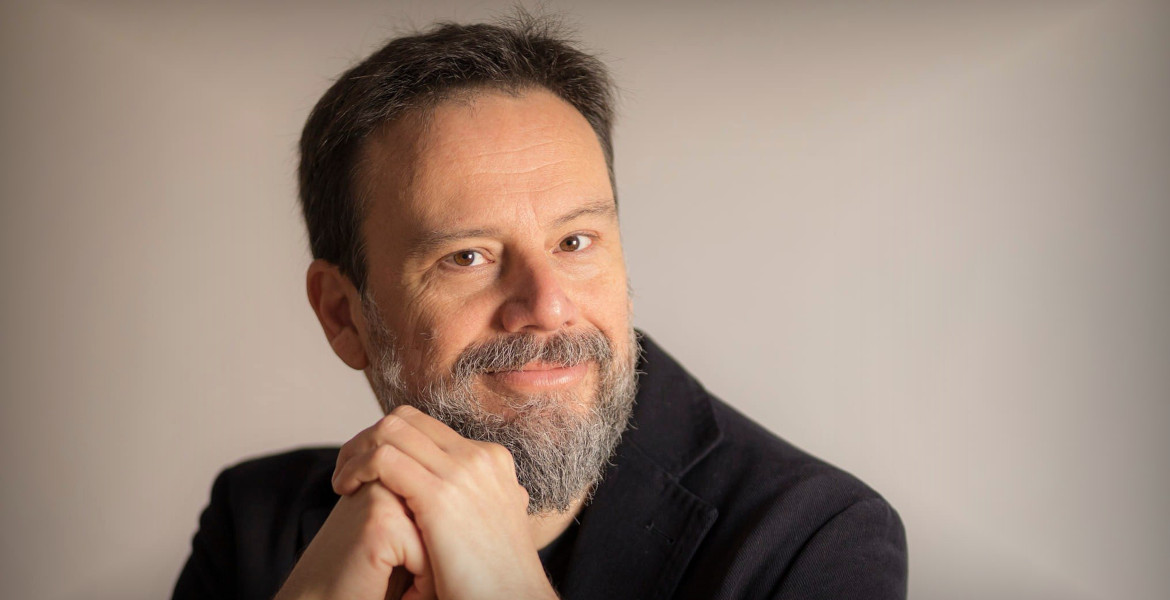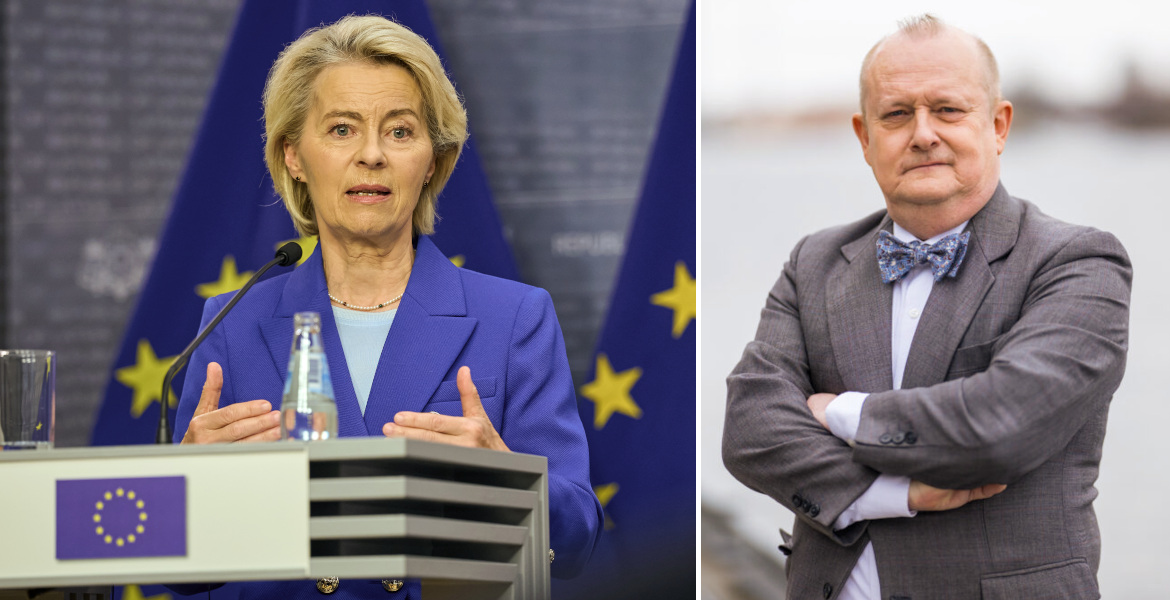The EU is proposing to set up a new body to examine all calls within or to Europe via phones, chats, etc. and all private internet traffic (emails, images, etc.). The aim, they say, is to use AI to search for child pornography and find child sexual abuse. Such a law would mean that all digital communication in Europe would be controlled by and through the EU. Encryption is currently used on the web to protect users from advanced espionage and information theft. But even the most advanced encryption systems are now being opened up, mainly to give the EU a backdoor into the systems in question and to be able to interpret/read communicated material or speech.
Last fall, the European Parliament rejected this bill, while the Council of Ministers is still divided internally. And there is not yet a secure majority to stop the proposal. If this goes through the Council of Ministers, they and the Parliament will have to agree on the law. So there are possibilities that either the proposal will be rejected or that it will probably be significantly changed. The Commission may also withdraw the proposal.
If mass surveillance results in the discovery of criminal material (any communication or text of a sexual nature concerning minors; naked or otherwise sexual images of young people, etc.), after some review by the central EU body, this goes to police organizations in the relevant EU countries. There, the suspect material is examined by employees or subcontractors who listen to or view what may be very private oral or written communications. Given the variety and vocabulary of sexual communications between people, there is a high risk that wrongly flagged material will often be found and investigated.
Another feature of the proposal is that age verification will be required for all online activity. This makes privacy impossible. Chatting or sending/receiving written material anonymously will no longer be safe. This poses risks in a number of situations, such as journalists' contacts with secret sources, for whistleblowers, communication within political resistance movements based in Europe, and so on.
The surveillance is carried out 24/7/30, i.e. constantly and without exception. Of course, there is no warrant, which would require some kind of suspicion against someone. The AI tools in question are not yet developed, and it is obvious that companies are working to get development contracts from the EU, which of course means that they will get some of the big contracts for the systems they build. The level of development is not trivial; for example, existing technology has had difficulty distinguishing the age of children/young people from photographs. The age limit for the protection of minors is 18. Significant such difficulties exist in cases involving, for example, the category of children/youth between the ages of 15 and 23. As a result, previous attempts to determine this age resulted in unacceptably high error rates.
The Chat Control 2.0 proposal to monitor all digital communications in Europe in order to detect, prevent and punish perpetrators of serious crimes against children is therefore extremely ambitious and far-reaching, even extreme. It is therefore a threat to the integrity and privacy of Europeans.
1. But the crime is so terrible!
The proposer, Swedish Commissioner Ylva Johansson, defends her proposal by arguing that crimes against children are so terrible. But there are other serious crimes that use the Internet that are comparable, but for which no one seriously wanted to propose the introduction of mass surveillance. In its proposed form, it will deeply interfere with human rights, including, in this case, people's integrity. This applies especially to the right to privacy and the right to protected correspondence/communication, including the protection of personal data. Violation of our rights on this basis would lead to several similar exceptions in the future. The fact that, even with new technology, the methodology and search for child crimes are likely to lead to errors with high frequency does not strengthen the proposal.
Individual rights have been formulated in the full knowledge that many serious crimes are committed against human beings. Based on this knowledge, human rights have been formulated in various ways, including the integrity that all people should and must have in society. This is now rejected by a dogmatic social democratic commissioner. She believes that these particular crimes against children are so terrible that previous groups and commissions that have worked on rights proposals and had their proposals publicly accepted by many parliaments, including international organizations such as the UN, were wrong and that certain human rights can and should be violated.
Commissioner Ylva Johansson says that in the process of investigating information flows, conversations are not reviewed and documents are not opened unless there is something potentially criminal in them. She argues, among other things, that the system's controls do not read communications, but simply glide past them, like a drug-sniffing dog examining luggage. But the circumstances of the two cases are completely different, and the analogy is wrong even for circumvention, since the significant and growing proportion of messages that are encrypted end-to-end must be opened to be read. The argument also fails to address the main arguments against the proposal.
Crimes committed by children are not of such a nature that they cannot be effectively dealt with by accepted police measures. However, instead of developing such an approach and designing an effective proposal to prioritize these crimes and to deal with and prevent them within the framework of modern and effective national and especially international policing, an approach was chosen that breaks the most important rules of society. The EU Parliament, which rejected the EU proposal on privacy grounds, has therefore outlined an alternative, more conventional and creative proposal.
2. But it only applies to this area
The argument that the bill only applies to a certain limited area completely ignores the spillover effect of a proposal that violates fundamental legal principles. Individual rights, such as the right to privacy, are abhorred by many collectivist political movements because they protect human freedom in so many ways. A violation of such an important right accepted by the EU will soon attract others to exploit the same leak in the dam holding back the multitude of anti-freedom and authoritarian attempts to further transform the still partially free society in Europe. Even the EU would probably use the changed principle for other purposes and areas. Every leak and every extension of the intrusion brings us closer to a horrible authoritarian world, where the issue of child abuse becomes a mere trifle. So it is not only in this area.
3. How do criminals respond?
Few police actions are taken without causing a change in criminal behavior. After the introduction of an effective monitoring system, serious criminals will move to the darknet, if they are not already there. In addition, one should not underestimate the human capacity for technological development. Intensive public monitoring of the network is likely to lead to such technological development that people with resources can at least partially evade monitoring. The distribution routes of material are likely to change significantly, so that, for example, electronic criminal material is physically transported in a portable way across borders or within countries. Postal systems may also be used. Cybercrime against children predates the Internet, and these previously more difficult to control channels are likely to be easily activated.
It will of course take more time and be much more difficult for operators and consumers, but as long as the activity is profitable because of the existence of a demand, the distribution of child abuse material will not stop. The demand that is likely to decrease the most is the demand for images and videos from individuals for whom it is not of significant importance. Individuals for whom child pornography is very important are likely to have the time and willingness to learn about the alternative distribution channels. Once the monitoring system is in place, it is likely that after a few years the impact will be much less, as activities related to child sexual offences and pornography trafficking in Europe move away from the Internet. A residual proportion who do use the internet to communicate about certain types of abuse are likely to use code words and euphemisms that will be perceived as normal by the system. The serious crimes of grooming, physical trafficking of children, etc. also often involve actors with the skills and resources to exploit new technologies and alternative means of communication.
4. Why has the proposal been drafted in this way?
It has surprised many that instead of formulating a legislative proposal based on police measures of various kinds in European countries and innovative but acceptable international cooperation with various communication platforms, the EU has chosen a measure that violates everyone in Europe who uses digital communication. Everyone, without exception, is considered a potential criminal and is to be monitored without suspicion or judicial authorization. It is hard to believe that the courts, and possibly even the EU Supreme Court, will not intervene at some point. It is therefore an almost unique bill that Ylva Johansson has presented. She has not explored the possibility of trying to solve the current problem by legal means, but instead is trying to build what is likely to be a very expensive system that deeply violates human rights. Why is she doing this?
One reason may be the interest of electronics companies in obtaining funding for what they see as possible technological development. Many electronics companies today do not seem to be guided by any morality, but in this case are blinded by the technical possibilities of controlling information over the Internet. The fact that their economic motives lead to the violation of human rights does not stop them. This applies to organizations I call IG Farben companies.1 EU parliamentarians have just claimed that Ylva Johansson has been intensively processed by such companies, which she denies.
Virtually all human rights organizations reject the Chat Control 2.0 proposal, as does the UN Commissioner for Human Rights. So do the legal bodies associated with the EU Council of Ministers and the Commission, which emphasize that the proposal violates human rights and thus the EU's own Constitution and the European Convention on Human Rights. This is also the view of the EU Data Protection Authority. The computer science research community in general seems to be of the same opinion, as well as many organizations in EU countries. The European Commission itself does not disagree that human rights are being violated, but wants the proposal to go through anyway. In doing so, it is taking a considerable political risk on the eve of an important European Parliament election. Can anyone believe that the reason for this is to stop child pornography and child abuse?
Ylva Johansson has also refused to agree to changes to the proposal, in a way that differs from the usual behavior of Commissioners when their proposals face strong opposition. Further contacts, talks, successive compromises and so on are the usual way, but our Swedish Ylva sticks to her chat control. The proposal is also technically extensive, and is likely to require significant development and start-up costs of various kinds, as well as investment in hardware. At the same time, it can be predicted that the frequency of detected real crimes will decrease after a few years.
There are several types of child abuse. Child pornography should be considered less important than physical sexual abuse and physical trafficking of children, other types not mentioned. However, for the more serious types of abuse, the opportunities to avoid monitoring are likely to be greater, reducing the impact and importance of the proposal. Should such a large and expensive system be built only for all types of child abuse and child pornography, when it is foreseeable that the benefits of the system will diminish rather quickly?
It is such a strange measure by a Commissioner and the European Commission that one has to wonder if the main purpose is not something else. It should be remembered that the current system can, if it chooses to do so, set the control parameters to look for just about anything. In the future, a number of difficult problems will arise for the EU's governing bodies: who are the most active opponents of the EU as an organization and who want to break off membership, and what are they doing? What is the interaction between different such networks? Which EU citizens actively support alternative media or libertarian parties? What is the interaction between libertarian organizations and parties in different countries? What oppositional networks are emerging to oppose measures taken in the event of a new pandemic, and who are their leaders and active members? The potential for obtaining very important information for policy makers at national and EU level through the surveillance system can thus be enormous, and it is likely that future EU governments will want to use it.
The hypothesis then is that the system to which the Chat Control 2.0 proposal leads is actually intended for future mass surveillance, when the EU has either become a federal state or is governed under future changed conditions regarding majority decision-making in the Union. The initial assumption is that crises will be used to get countries to disregard their constitutions, as was the case with covid-19. The need to amend them could also be a consequence. Later, the governing body is likely to have gained the power to take previously forbidden measures against the population under certain conditions (though easily met). Such laws create the need for an instrument of mass surveillance, possibly for the federal government, and complement the other means that an authoritarian state can abuse. These include knowledge of the opinions of selected EU citizens according to social media; their financial position, spending and investments; all available information about them in all public systems, and so on.
In this case, because the unlocked Chat Control now also provides much more information about the underlying views of each suspect and their network of friends and people they collaborate with, are supported by, or endorse, you have an almost complete picture of that person. This opens up the possibility of gaining control over his activities at a later stage, when new legislation on crimes against the state is in place.
5. What is the main problem with chat control?
We have talked above about human rights, especially the right to privacy, the right to protected correspondence/communication, including the protection of personal data. Mass surveillance also compromises freedom of expression and information in many cases. The latter includes the numerous false flags that the system generates, which are then investigated by police or civilian personnel. Deliberate false flags on persons of interest to the EU may come later.
So what is human integrity? Well, first of all, it is a feeling, an area, a protected sphere that each person owns and that he or she does not allow others to enter or touch. Only he or she, or those to whom he or she has given the right, can do so. This applies to a number of aspects of the individual's life that are so private that no outsider has the right to know about them, to know and/or discuss them, or to inform others about them. They concern her real self, herself in depth. And the state has no right whatsoever to monitor a citizen's private life, including his communications, without suspicion.
Violations of privacy thus affect the individual's strongest and deepest values, and thus feelings that partly control and perhaps dominate her when they are violated. These include their basic views of themselves, life including sexual aspects, family, religious beliefs, freedom, and so on. And who you communicate with is none of the state's business. Some citizens consider such intrusions as attacks on themselves and may find reasons to react. The state should avoid this completely, even for a purpose such as solving a serious crime problem. There are other ways. And the other kinds of violations are also unacceptable.
Dan Ahlmark
Sources and references:
(1) Nya Dagbladet - The corporate giants that enable a totalitarian development of society





